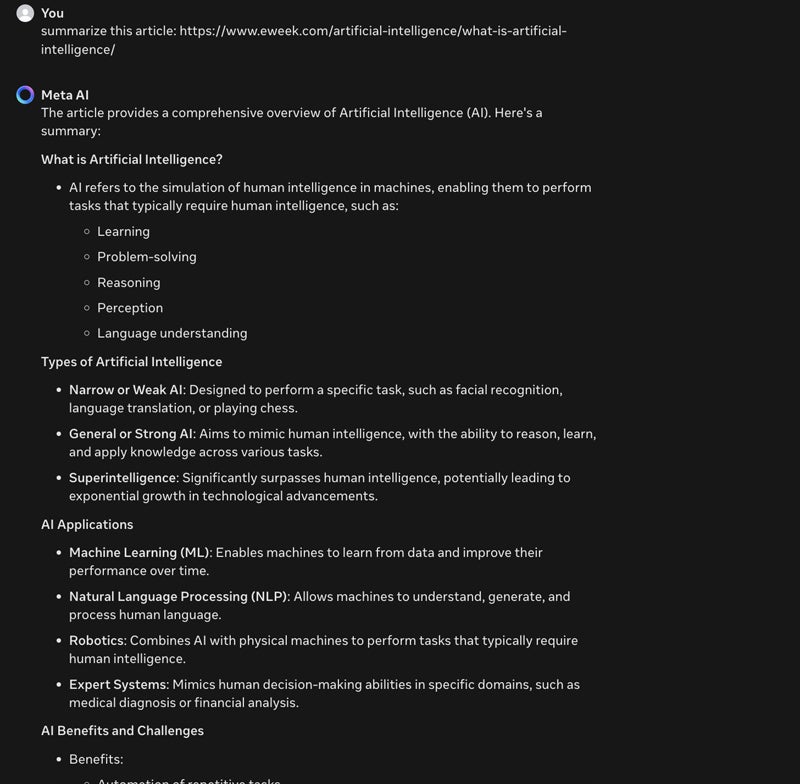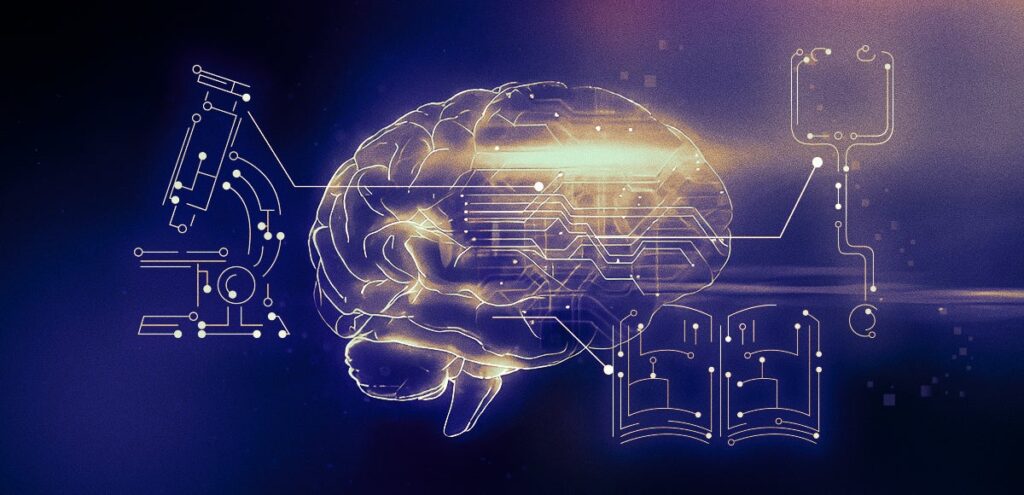Meta AI Expertise Review evaluates the effectiveness and accuracy of AI models developed by Meta. This review highlights strengths, weaknesses, and areas for improvement.
Meta’s advancements in AI technology have sparked significant interest in the tech community. Their models aim to enhance user experience across various platforms. With a strong focus on natural language processing and machine learning, Meta seeks to bridge the gap between human and machine interaction.
The ongoing review process ensures that these AI systems meet high standards of reliability and performance. Understanding the implications of this expertise review can help users appreciate how Meta’s innovations impact daily life and digital communication. Exploring these insights reveals the future direction of AI technology and its potential benefits for society.
Meta AI is a branch of artificial intelligence developed by Meta Platforms, Inc. It focuses on innovative technologies. This section explores its evolution and mission.
The Evolution Of Ai At Meta
Meta’s journey in AI began years ago. It started with basic algorithms and simple models. Over time, the technology advanced significantly.
- 2013: Meta introduced its first AI tools.
- 2016: They launched a deep learning framework.
- 2020: Meta AI developed state-of-the-art language models.
- 2022: They focused on AI for virtual and augmented reality.
These milestones show how Meta is committed to AI. The company aims to make technology smarter and more user-friendly.
Meta’s Ai Mission
Meta’s mission is to advance AI in various fields. They want to improve user experience across all platforms.
| Focus Area | Description |
|---|---|
| Social Interaction | Enhancing communication through intelligent features. |
| Content Creation | Assisting users in generating creative content. |
| Safety and Security | Using AI to monitor and prevent harmful behavior. |
Meta aims to ensure AI is ethical and accessible. They believe in creating tools for everyone. Innovation and responsibility go hand in hand in their approach.

Credit: www.youtube.com
Core Technologies Behind Meta Ai
Meta AI uses cutting-edge technologies to enhance its capabilities. These technologies form the backbone of its innovative solutions. Understanding these core technologies helps users appreciate Meta AI’s impact.
Advanced Machine Learning
Advanced Machine Learning (ML) is a key component of Meta AI. This technology enables systems to learn from data. It improves tasks without human intervention.
- Deep Learning: Uses neural networks to process complex data.
- Reinforcement Learning: Teaches systems to make decisions based on rewards.
- Supervised Learning: Learns from labeled data to make predictions.
These ML techniques allow Meta AI to:
- Identify patterns in large datasets.
- Provide personalized experiences to users.
- Optimize processes across various applications.
Another Product: 300 PLR Conquering Fear Viral Videos Review
Natural Language Processing Capabilities
Natural Language Processing (NLP) enhances Meta AI’s ability to understand human language. This technology allows machines to interact with people naturally.
<<<< 100% Instant Free Access Here >>>>
Key features of NLP include:
| Feature | Description |
|---|---|
| Text Analysis | Extracts insights from written content. |
| Sentiment Analysis | Determines emotions behind text. |
| Chatbots | Enables automated conversations with users. |
With NLP, Meta AI can:
- Enhance user engagement.
- Provide accurate responses in real-time.
- Understand context and intent effectively.
Meta Ai’s Impact On Social Media
Meta AI is changing how we interact on social media. It enhances user experiences and ensures safer spaces online. This technology is vital for understanding user needs and preferences. Let’s explore its influence through two critical areas.
Enhancing User Experience
Meta AI enhances user experience in various ways. Here are some key features:
- Personalized Content: AI tailors content based on user interests.
- Smart Recommendations: Users receive suggestions for friends and groups.
- Interactive Features: AI powers chatbots for real-time responses.
This personalization keeps users engaged and satisfied. The technology analyzes user behavior to improve interactions. As a result, users spend more time on platforms.
Content Moderation And Ethics
Content moderation is essential for safe online spaces. Meta AI plays a crucial role here:
| Feature | Description |
|---|---|
| Automatic Filtering | AI filters harmful content automatically. |
| Real-Time Monitoring | AI monitors posts and comments instantly. |
| Ethical Guidelines | AI follows strict guidelines for content review. |
These measures help create a respectful online community. Users feel safer knowing harmful content is controlled. Ethical AI use promotes trust among users.
Breakthroughs In Conversational Ai
Conversational AI has transformed how we interact with technology. It powers chatbots, virtual assistants, and more. These breakthroughs make machines understand and respond like humans. This section highlights significant advancements in this field.
Developing Bert And Beyond
BERT (Bidirectional Encoder Representations from Transformers) is a game changer. It improves language understanding. BERT allows models to consider context from both directions. This leads to better responses and more natural conversations.
Key features of BERT include:
- Contextual Understanding: BERT reads sentences as a whole.
- Bidirectional Training: It learns from both left and right context.
- Fine-Tuning: Models can adapt to specific tasks easily.
Other advancements include:
- GPT (Generative Pre-trained Transformer)
- T5 (Text-to-Text Transfer Transformer)
- XLNet (Generalized Autoregressive Pretraining)
Real-world Applications
Conversational AI has many real-world uses. Businesses leverage it for customer support. Here are some notable applications:
| Application | Description |
|---|---|
| Customer Support | AI chatbots answer common questions quickly. |
| Virtual Assistants | Tools like Siri and Alexa help with daily tasks. |
| Language Translation | Real-time translation tools break language barriers. |
Benefits of these applications include:
- 24/7 Availability: AI never sleeps.
- Cost Efficiency: Reduces human labor costs.
- Improved Customer Satisfaction: Fast responses increase happiness.
Ai For Virtual Reality And Augmented Reality
Artificial Intelligence is transforming the worlds of Virtual Reality (VR) and Augmented Reality (AR). AI enhances user experiences. It makes environments more interactive and engaging.
Through AI, developers create lifelike characters and dynamic worlds. This technology adapts to user actions. It also predicts user preferences, making experiences personal.
Creating Immersive Environments
AI helps craft immersive environments in VR and AR. Here are key benefits:
- Realistic interactions: AI simulates human behavior.
- Dynamic content: Environments change based on user choices.
- Personalization: Experiences adjust to individual users.
AI algorithms analyze user data. They create tailored experiences. Users feel like they are part of the story.
Future Of Vr/ar With Ai
The future of VR and AR looks bright with AI advancements. Here’s what to expect:
- Enhanced realism: AI will make environments more lifelike.
- Improved AI companions: Characters will be more relatable.
- Faster development: AI tools will speed up content creation.
AI will help bridge the gap between reality and imagination. The possibilities are endless. VR and AR will become integral to daily life.
Meta Ai In Academic Collaborations
Meta AI actively partners with academic institutions. These collaborations enhance research and innovation in artificial intelligence.
Working together, Meta AI and universities drive progress in technology. They focus on solving real-world problems using AI.
Partnerships With Universities
Meta AI forms strong partnerships with various universities. These partnerships focus on:
- Joint research projects
- Student internships
- Workshops and seminars
These initiatives help students and researchers gain hands-on experience. They also encourage knowledge sharing between academia and industry.
Some notable partnerships include:
| University | Area of Collaboration |
|---|---|
| Stanford University | Machine learning research |
| MIT | Natural language processing |
| University of Toronto | Deep learning advancements |
Open Source Contributions
Meta AI supports open source projects. This approach fosters collaboration within the AI community.
Open source contributions include:
- Releasing datasets
- Providing tools and libraries
- Encouraging community-driven projects
Meta AI’s open-source initiatives help researchers and developers. They make AI technology accessible to everyone.
Examples of popular open-source projects include:
- PyTorch – A machine learning library.
- Detectron2 – A system for object detection.
- FAIR Seq – A library for sequence-to-sequence models.
>>>> Click Here To Get Meta Ai Expertise Today >>>>
Challenges And Controversies
The rise of Meta AI brings both excitement and challenges. Many people worry about issues like privacy and fairness. These concerns need careful attention.
Data Privacy Concerns
Data privacy is a major issue for Meta AI. Users share personal information daily. This data can be misused if not protected.
- Data breaches can expose sensitive information.
- Users may not know how their data is used.
- Regulations like GDPR aim to protect users.
Meta must ensure strong security measures. Transparency is vital for user trust. Regular audits can help identify weaknesses in data protection.
Ai Bias And Fairness
AI bias is another pressing issue. Algorithms can reflect human prejudices. This can lead to unfair outcomes for certain groups.
| Type of Bias | Description |
|---|---|
| Gender Bias | AI may favor one gender over another. |
| Racial Bias | Algorithms may discriminate based on race. |
| Socioeconomic Bias | Lower-income groups might be disadvantaged. |
Addressing AI bias is crucial. Meta needs diverse teams to develop fair algorithms. Continuous testing and feedback can help improve AI fairness.

Credit: www.eweek.com
Looking Ahead
The future of AI holds exciting possibilities. Companies strive for next-generation AI systems. They aim to enhance our daily lives. Ethical considerations guide this journey. Let’s explore what lies ahead.
Next-generation Ai Systems
Next-generation AI systems are more advanced and efficient. They promise to transform industries and everyday tasks. Key features include:
- Improved Learning: Faster adaptation to new data.
- Enhanced Interaction: Better communication with users.
- Automation: Streamlined processes across sectors.
These systems can personalize experiences. They learn from user behavior. Industries like healthcare and education benefit greatly. These improvements lead to:
| Industry | Benefit |
|---|---|
| Healthcare | Quicker diagnosis and treatment suggestions |
| Education | Tailored learning paths for students |
| Finance | Fraud detection and risk management |
Ethical Ai Development
Ethical AI development is crucial. It ensures technology serves humanity. The focus areas include:
- Transparency: Clear understanding of AI decision-making.
- Accountability: Responsibility for AI actions.
- Fairness: Avoiding bias in algorithms.
Developers must prioritize ethics. They must create guidelines for responsible use. Engaging communities helps gather diverse perspectives. This leads to better solutions for everyone.
Investing in ethical AI fosters trust. It encourages users to embrace technology. A strong ethical foundation drives innovation forward.
Frequently Asked Questions
Is Meta Ai Any Good?
Meta AI offers impressive capabilities in natural language processing and image generation. Many users appreciate its user-friendly design and versatility. While it excels in various applications, some may find it lacks the depth of specialized tools. Overall, Meta AI is a solid choice for general AI needs.
Is Meta Ai Better Than Copilot?
Meta AI and Copilot serve different purposes. Meta AI focuses on conversational interactions and data insights. Copilot enhances productivity in coding and writing tasks. Your choice depends on your specific needs and the tasks you want to accomplish. Assess both to determine which fits your requirements better.
Is Ask Meta Ai Safe?
Ask Meta AI is generally considered safe for users. It adheres to privacy guidelines and security protocols to protect user data. Always review the platform’s terms of service and privacy policy for detailed information. Stay informed to ensure a secure experience while using the service.
Is It Safe To Chat With Meta Ai On Whatsapp?
Yes, chatting with Meta AI on WhatsApp is generally safe. Meta employs strict privacy measures to protect your data. Always avoid sharing sensitive information to ensure your safety. Enjoy the convenience of AI assistance while maintaining your privacy.
Conclusion
Meta AI has proven to be a powerful tool for enhancing various tasks. Its capabilities in data analysis and automation are impressive. Users benefit from its ease of integration and user-friendly interface. As AI continues to evolve, Meta AI will likely remain a key player in driving innovation.
Embrace its potential for your projects.






